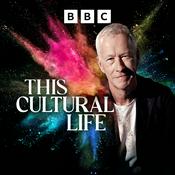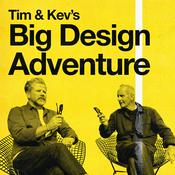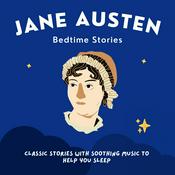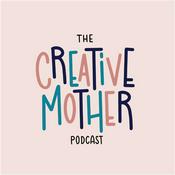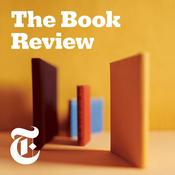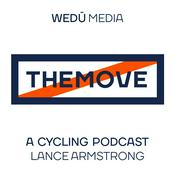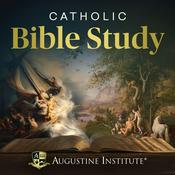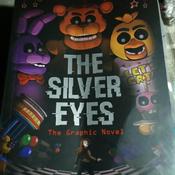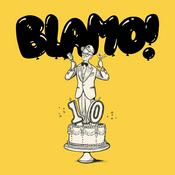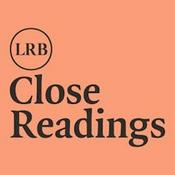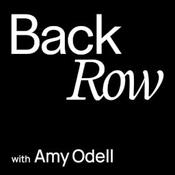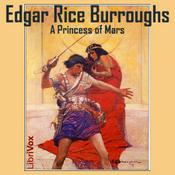128 episodes
- Welcome to Middlemarch, Book One.
In this first “reading” episode of Middlemarch, Rhea and Shari dive headlong into the world of early-1800’s provencial England. They spend a great amount of time discussing the story’s witty, critical, big-hearted narrator. They examine the text for understanding how they are meant to feel about Casaubon, though they already know exactly how they feel about Casaubon. They talk about Dorthea as viewed from various points of view—especially her sister, Celia’s. They look at where the narrator offers us a critical eye, a wide lens, and always a quick witt. Rhea wonders if she’ll even be able to find a character she’ll love to hate. Shari declares Celia is her hero.
If you haven’t seen it yet, be sure to read through R&W’s Middlemarch page. It’s full of great stuff:
Thanks for reading The Reader & the Writer! If you liked this post, please show it some ❤️ and share it around.
The Reader & the Writer is a reader-supported publication. To receive new posts and support the literary work we’re doing, consider becoming a free or paid subscriber.
Get full access to The Reader & the Writer at thereaderandthewriter.substack.com/subscribe - Welcome to R&W’s second episode of Frankenstein, by Mary Shelley. In this episode, Shari and Rhea dive deeper into the complexities and questions begged by the nested narrative style of the story, Shelley’s use of nature as a metaphor and motif, the use of counterpoints in every character as they relate to Victor, the many Great Conversations embedded in Volume 2, a continued study of humans’ duties toward the works of our hands, and their severe discomfort at the Creature’s lack of a name.
The final Frankenstein episode will air Tuesday, February 10th. (This is one week off the original reading schedule, due to inclement weather.)
Here is a link to Rhea’s Frankenstein Reading Guide:
Thanks for listening to The Reader & the Writer! If you liked this episode, show it some ❤️ and share it with a friend.
The Reader & the Writer is a reader-supported publication. To receive new posts and support the literary work we do, consider becoming a free or paid subscriber.
Get full access to The Reader & the Writer at thereaderandthewriter.substack.com/subscribe - “Learn from me, if not by my precepts, at least by my example, how dangerous is the acquirement of knowledge, and how much happier that man is who believes his native town to be the world, that he who aspires to become greater than his nature will allow.”
—Victor Frankenstein to Capt. Walton (p 41, 1818 version)
Welcome to Mary Shelley’s Frankenstein, R&W’s first deep read for 2026. In this episode, Shari and Rhea do a brief introduction to Mary Shelley herself, and those aspects of her life they can see informing aspects of the Frankenstein tale They talk about their experience reading the 1818 and 1831 versions side-by-side. They discuss the epistolary style of the narrative, the motifs they see, and the horrible moment of Victor Frankenstein’s creation coming to life. They talk about our own making and ask what responsibility we hold to that which we make: from marriage, home and children, to careers, inventions, and those physical works of our hands.
All this, and they barely scratched the surface.
Make sure to look at Rhea’s Reading Guide for Frankenstein:
It's full of great resources, the reading schedule, Middlemarch connections, and bookmarks, of course! :)
Thanks for listening to The Reader & the Writer! If you liked this episode, ❤️ it and share it around.
The Reader & the Writer is a reader-supported publication. To receive new posts and support the literary work we’re doing, consider becoming a free or paid subscriber.
Get full access to The Reader & the Writer at thereaderandthewriter.substack.com/subscribe - Welcome to Middlemarch! In this episode, Shari and Rhea lay the groundwork for R&W’s first yearish-long read. They discuss the author, George Eliot, the origin story of Middlemarch, and all the things they will be looking for while they read. Oh, and they try and figure out exactly what “provincial” means.
To find the reading schedule, bookmarks, and other resources mentioned in the podcast, visit R&W’s Middlemarch page:
For a list of R&W’s entire 2026 year of reading click here:
Thanks for listening to this episode of The Reader & the Writer! If you liked this episode, ❤️ it and share it with a friend.
The Reader & the Writer is a reader-supported publication. To receive new posts and support our literary work, consider becoming a free or paid subscriber.
Get full access to The Reader & the Writer at thereaderandthewriter.substack.com/subscribe - Welcome to the final episode of R&W’s 2025 year-long read of War and Peace. It really is hard to believe it’s over (Except, if you’re Shari, it’s not. Six more Epilogue essays to go!)
In this episode, Shari and Rhea discuss the way Tolstoy takes the characters off the stage in the end, and sets them squarely in the beautiful mundane of every day life. They talk about characters they wish they’d heard more from, characters they kept thinking might pop back up and play more of a role, the character Rhea loved to hate in the end. They talked about their favorite scenes and sections, as well as those places they could have done without. They talked about what part of spending an entire year with War and Peace they will miss. Oh, and what they’re looking forward to with their next (not quite) year-long read, Middlemarch, by George Eliot.
Speaking of, if you haven’t seen The Reader and the Writer’s 2026 reading list in order with dates, to include our year-long reads: Middlemarch and the Harry Potter series (going into 2027), you can find it here:
To follow my annotations, personal notes, and War and Peace story connections on Tolstoy’s Epilogue essays (12 essays in 12 days), start here:
Thank you so much for reading along with us in 2025! And cheers to many more years of happy slow reading together. 🥂
Thanks for listening to this episode of The Reader & the Writer! If you liked what you heard, give it some ❤️ and share it with a fellow War and Peace lover like you.
The Reader & the Writer is a reader-supported publication. To receive new posts and support the literary work we’re doing, consider becoming a free or paid subscriber.
Get full access to The Reader & the Writer at thereaderandthewriter.substack.com/subscribe
More Arts podcasts
Trending Arts podcasts
About The Reader and the Writer
Our lives, from their beginnings, are storied, and find their fullness when nestled securely within the Great Story; the one that opens, “In the Beginning…” Here on The Reader and the Writer, we delight in and give witness to that Great Story by reading and discussing those excellent works of literature written since. thereaderandthewriter.substack.com
Podcast websiteListen to The Reader and the Writer, ill-advised by Bill Nighy and many other podcasts from around the world with the radio.net app
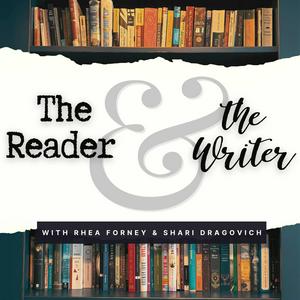
Get the free radio.net app
- Stations and podcasts to bookmark
- Stream via Wi-Fi or Bluetooth
- Supports Carplay & Android Auto
- Many other app features
Get the free radio.net app
- Stations and podcasts to bookmark
- Stream via Wi-Fi or Bluetooth
- Supports Carplay & Android Auto
- Many other app features


The Reader and the Writer
Scan code,
download the app,
start listening.
download the app,
start listening.


